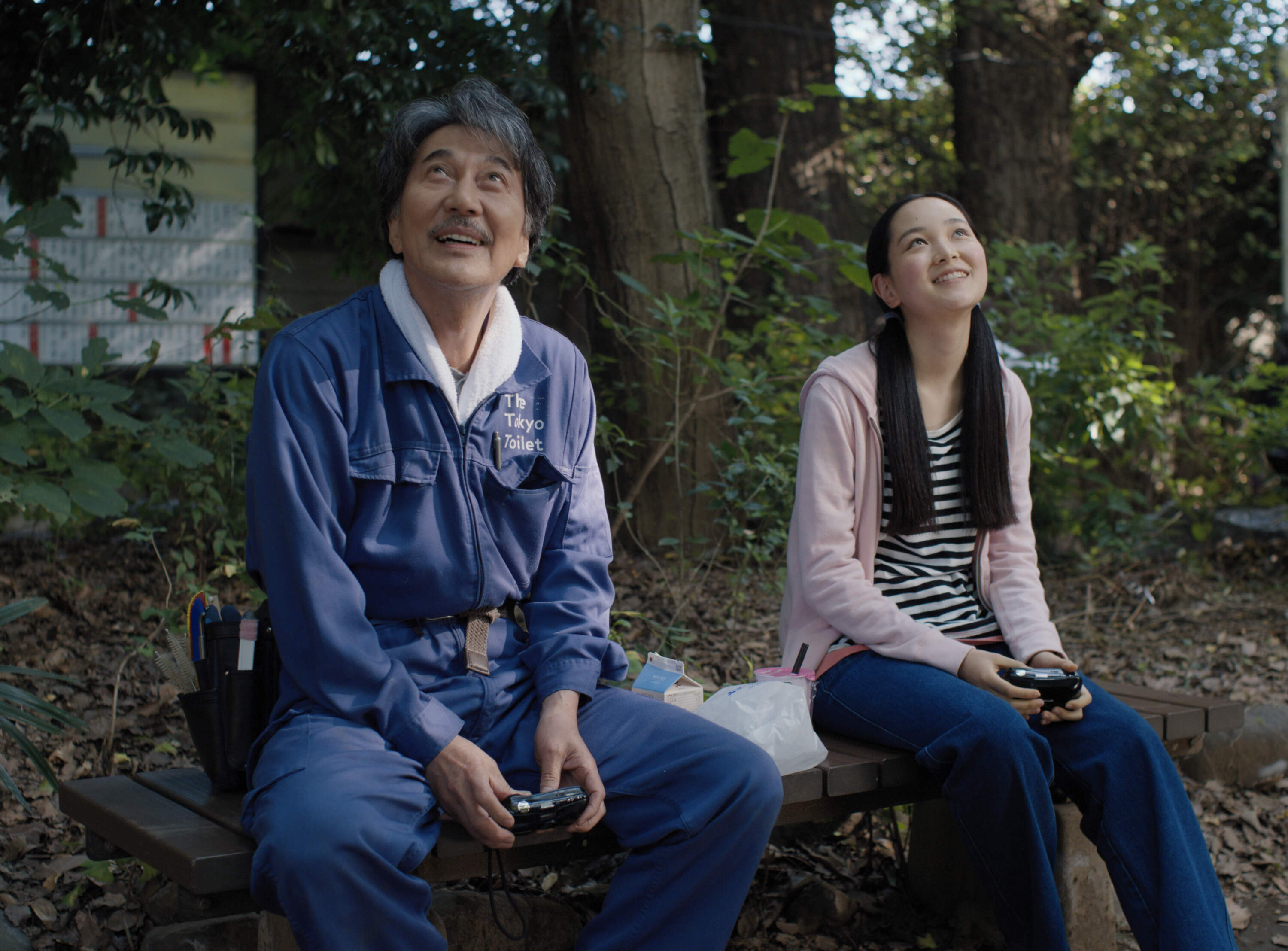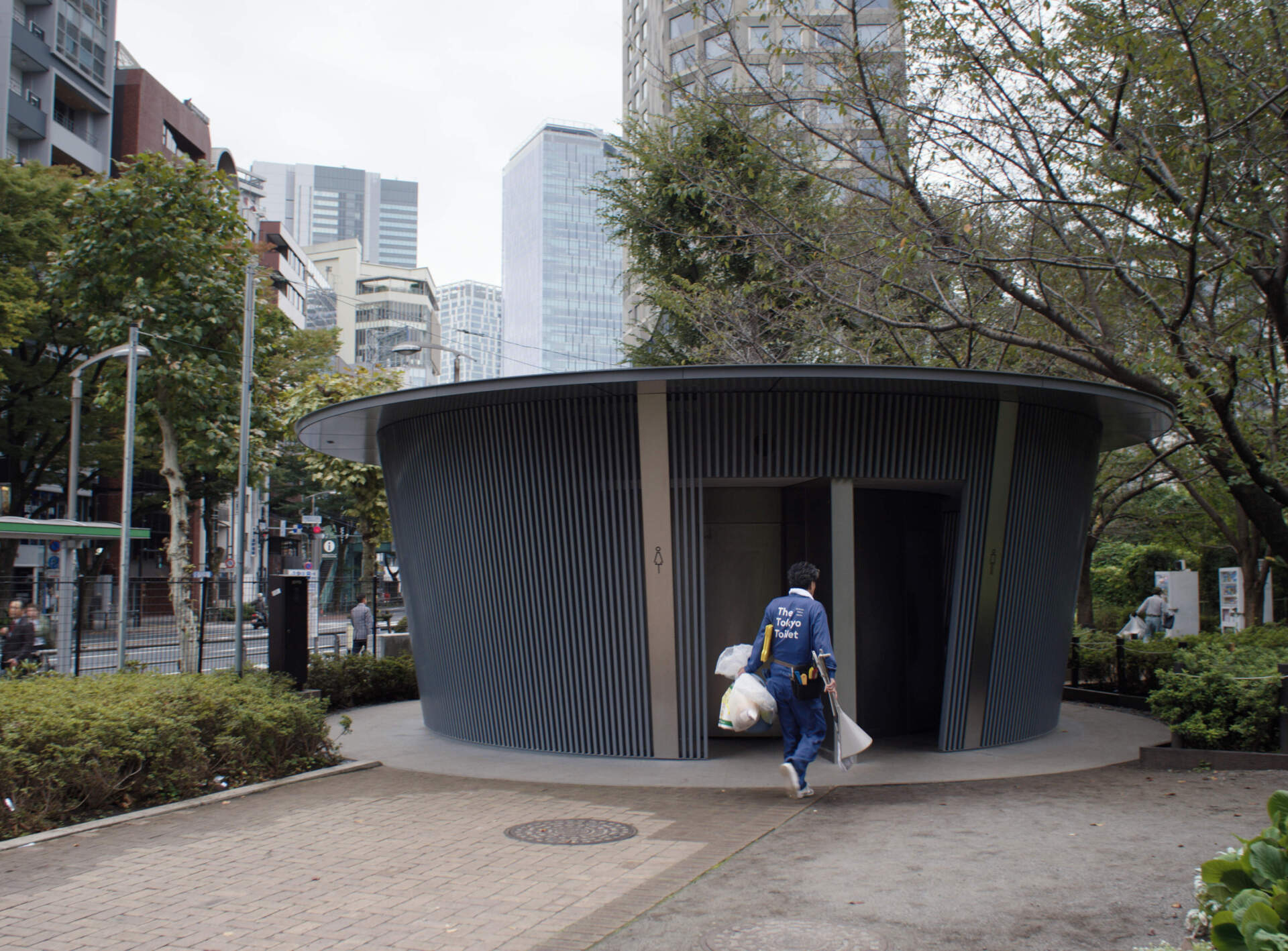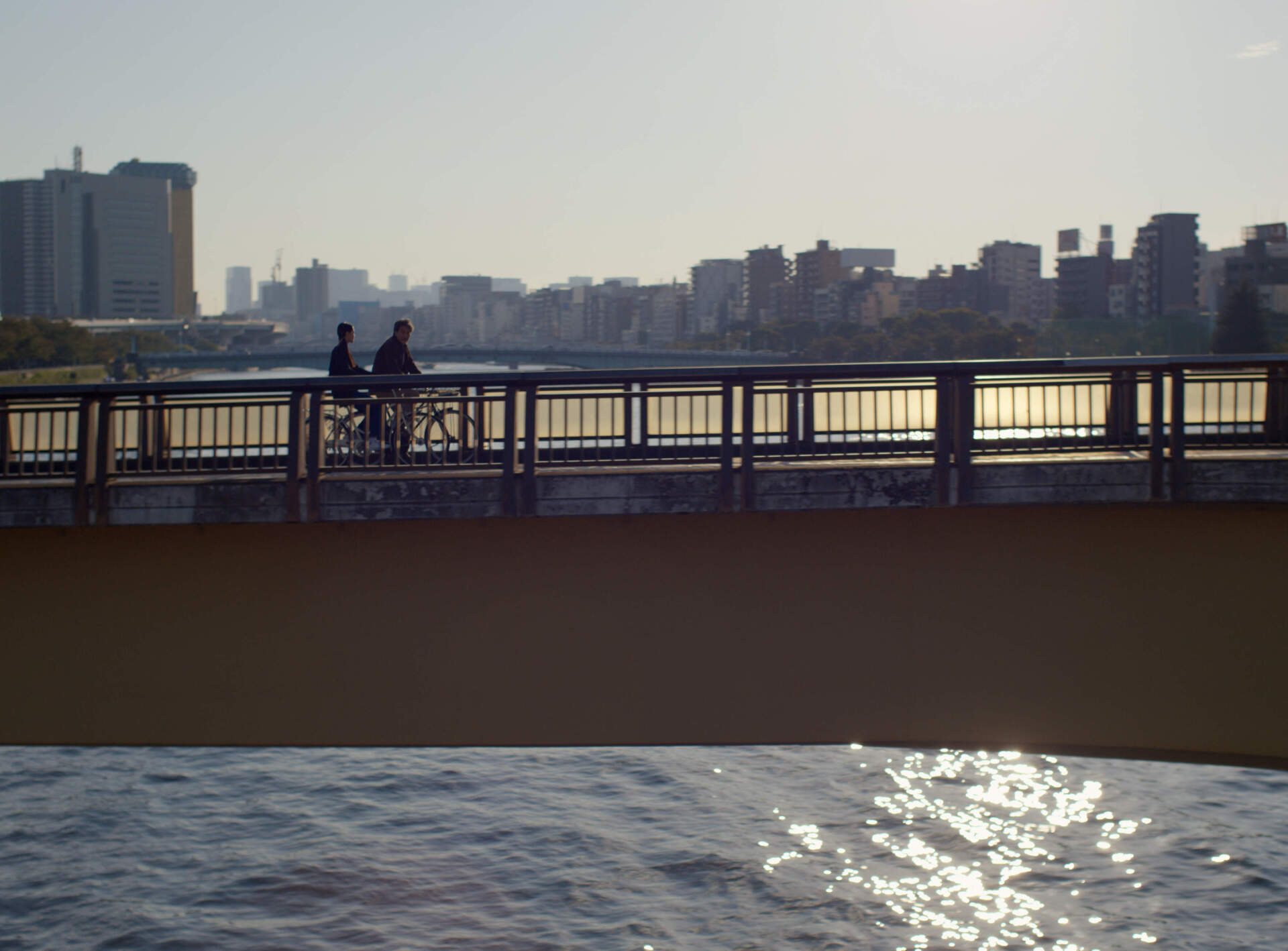Advertisement
Review
Wim Wenders' 'Perfect Days' finds beauty in the routine

“Komorebi” is a Japanese word for the dancing shadow patterns created by sunlight shining through the rustling leaves of trees. There’s no equivalent term in English, and it’s tough to imagine any American caring enough to come up with one. But every afternoon on his lunch break, Hirayama (Koji Yakusho) takes a picture of the komorebi from his favorite park bench using an old Olympus film camera. Back at his apartment, he’s got boxes and boxes of black-and-white photos of the same spot, every one of them unique. Subtle shifts of the light and swaying branches in the breeze make similar snapshots strikingly different every time. Indeed, the whole concept behind komorebi is that it can exist only in a moment, never to be repeated. “Next time is next time,” Hirayama’s fond of saying, “Now is now.”
Director Wim Wenders’ “Perfect Days” is a movie about living in that moment, about finding beauty and grace in a familiar routine. And days don’t get more routine than Hirayama’s. He’s a janitor who cleans public restrooms for a living — though this being Japan, they clearly have a different concept of how welcoming such facilities should be. The Tokyo Toilet Project is a collection of 17 installations by designers and architects in the city’s upscale Shibuya ward. It’s like public art but you can pee in it, and anyone who’s ever had to relieve themselves at an MBTA station will probably spend the picture gasping in awe at these luxurious accommodations.
Hirayama takes great pride in his work, silently scrubbing and double-checking beneath the bowls with a hand-held mirror, tuning out the incessant chatter of his sloppy, much younger partner Takashi (Tokio Emoto) who won’t stop babbling about his love life. Hirayama doesn’t talk much, but he’s funny. You like him right away and can see why he’s so warmly welcomed by the clerks and bartenders at the shops and restaurants where he’s a regular, always ordering a tall glass of ice water. Never alcohol. Hirayama listens to old, classic rock cassettes and reads himself to sleep each night. Then he gets up in the morning and does it all again. Soon we begin to notice variations, like the komorebi — slight disruptions and changes in the light that make every ordinary day into something new.

The film’s first hour is blessedly plotless, acclimating us to Hirayama’s routine so that when larger interruptions inevitably arrive, we register them as powerfully as he does. It may sound strange to say that some of the most beautiful filmmaking you’ll see this year is in a movie about a man who cleans toilets, but there are passages of “Perfect Days” that took my breath away. Something as simple as Hirayama’s morning commute becomes a city symphony. We watch the world waking up to The Velvet Underground’s “Pale Blue Eyes,” one of the loveliest songs ever written, with Lou Reed’s whispers of forbidden love accompanied by gently jangling tambourine taps as the streets start to fill with people and cinematographer Franz Lustig’s supple light shifts from dawn into day.
Conveying a lifetime with very little dialogue, Yakusho won Best Actor at last year’s Cannes Film Festival for his performance as Hirayama. The beloved Japanese star has had a brilliant career going back to Jûzô Itami’s 1985 “Tampopo,” the original 1996 “Shall We Dance?” (not the remake with Richard Gere and J.Lo) and Takashi Miike’s rip-roaring 2010 “13 Assassins,” even if American audiences know him primarily for the indignity of appearing in Oscar bait like 2006’s “Babel” or the previous year’s “Memoirs of a Geisha.” “Perfect Days” is up for the Best International Feature Academy Award in March, which I suppose is a fitting category for a Japanese film made by a German director scored almost entirely with British and American rock ‘n’ roll. (One of my favorite scenes finds Takashi’s club-kid girlfriend mesmerized by the sounds of Patti Smith’s “Redondo Beach,” like Hirayama’s tape deck was beaming transmissions from another galaxy. Then she wants to hear it again.)
Watching Hirayama at work, we can’t help but be reminded of the angels in Wenders’ 1988 masterpiece “Wings of Desire,” invisibly observing the people of Berlin while they go about their daily business. Most folks ignore him, the way society has trained us to look past service workers. But Hirayama sees them in full. “Perfect Days” can sometimes feel like a cousin to Jim Jarmusch’s great 2016 “Paterson,” in which Adam Driver played a New Jersey bus driver who finds poetry in the quotidian. Both films use their taciturn, working-class heroes and repetitive structures to transcendental ends, but Hirayama strikes me as a much lonelier, more self-aware protagonist. As we learn a little about the life he’s left behind, Hirayama begins to resemble Harry Dean Stanton’s character from Wenders’ 1984 “Paris, Texas,” another of the filmmaker’s wounded, wandering dreamers — even if he doesn’t get a 20-minute monologue like Stanton did. The equivalent instead is a closeup on Yaksuho while he listens to Nina Simone’s “Feeling Good,” a mass of contentment and contradictions playing across his face.
“Perfect Days” is a long-awaited return to form for Wenders, a legend of the New German Cinema since the 1970s, who in recent years has been directing excellent documentaries about artists — 2011’s “Pina” and last month’s “Anselm,” for starters — while his later-period dramatic features have floundered. I don’t feel like Wenders ever fully recovered from the failure of his 1991 mega-production “Until the End of The World.” The 287-minute sci-fi extravaganza was filmed in five different countries and remains a jumble of semi-realized ideas, however prescient in its imagining of a future where everyone becomes debilitatingly addicted to staring at handheld digital devices all day. Returning to the site of his 1985 documentary “Tokyo-Ga,” in which the director visited the shooting locations used by his filmmaking hero, Yasujirō Ozu, “Perfect Days” feels like a deliberate retrenchment to the simplicity of Wenders’ earliest pictures, complete with an analog fetish for cassette tapes, used bookstores and Hirayama’s 35mm camera.

It became a bit of a joke among my friends last year that nobody was surprised when I responded so strongly to a movie about an old-fashioned film enthusiast who listens to a lot of Lou Reed and reads paperback books in bars. (I don’t clean toilets for a living, but I did have to review “Madame Web.”) Still, it wasn’t so funny when “Perfect Days” very nearly became one of the last films this critic ever saw.
I had a massive heart attack in December. Between us, there’s nothing like dropping dead in the middle of the street and having the fire department shock you back to life (three times) to reorient your perspective on things. Two stents and ten days in the hospital later, the experience scared me off some habits that had become unseemly for a man of my years. It also changed the way I approach my own imperfect days.
As a temperamentally preoccupied person who tends to get ahead of himself and has, in the past, made a minor art form out of flying off the handle, I’m trying to be more centered and present in the moment. I thought about this movie a lot during my recovery, and lately I’ve been taking a cue from Hirayama, stopping to look at how the light falls through the trees and listening to a lot of “Redondo Beach.” There’s so much everyday beauty all around us and I’m trying to get better about appreciating it. After all, next time is next time. Now is now.
“Perfect Days” opens in theaters on Thursday, Feb. 22.
